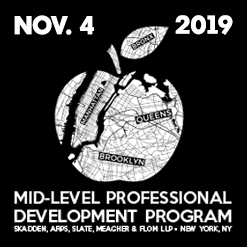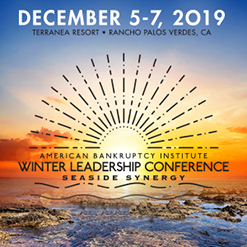| |
| |
| vol 17, num 3 | September 2019 |
| |
|
|
| |
|
|
|
|
|
| |
| Emerging Cracks in the Student Loan Wall |
| If you are a young or new attorney, there is a good chance that you have at least some (and perhaps significant) student loan debt. You may also be aware that discharging student loan debt in bankruptcy, unlike most other unsecured debt, is extremely difficult. This has not always been the case, however, and may not be the case in the future, as there is a growing push to provide more relief for student loan debt in bankruptcy and beyond.
History of Student Loan Dischargeability in Bankruptcy
Discharge of student loan debt is governed by § 523(a)(8) of the Bankruptcy Code, which in its present form states:
|
|
|
- (a) A discharge under section 727, 1141, 1228(a), 1228(b), or 1328(b) of this title does not discharge an individual debtor from any debt —
-
- (8) unless excepting such debt from discharge under this paragraph would impose an undue hardship on the debtor and the debtor’s dependent(s) for —
-
- (A)(i) an educational benefit overpayment or loan made, insured, or guaranteed by a governmental unit, or made under any program funded in whole or in part by a governmental unit or nonprofit institution; or (ii) an obligation to repay funds received as an educational benefit, scholarship, or stipend; or
- (B) any other educational loan that is a qualified education loan, as defined in section 221(d)(1) of the Internal Revenue Code of 1986, incurred by a debtor who is an individual.
|
|
|
| |
|
| |
| Rule 2004: A Powerful Tool with Potential for Abuse |
| To nonbankruptcy lawyers, Rule 2004 seems too good to be true. It appears to allow virtually anyone to obtain documents or testimony from any other person on any subject tangentially related to a bankruptcy. Not surprisingly, then, clever lawyers will attempt to push its boundaries. A recent opinion in the Cambridge Analytica bankruptcy examines and quashes one such attempt.
A Rule 2004 examination is a powerful tool. It allows any interested party (e.g., a creditor) to examine any person regarding “acts, conduct, or property or to the liabilities and financial condition of the debtor, or to any matter which may affect the administration of the debtor's estate, or to the debtor's right to a discharge.” In a chapter 11 case, Rule 2004 examinations are even broader. They include “the operation of any business and the desirability of its continuance, the source of any money or property acquired or to be acquired by the debtor for purposes of consummating a plan and the consideration given or offered therefor, and any other matter relevant to the case or to the formulation of a plan.” Routinely described as a “fishing expedition,” a Rule 2004 examination is “unfettered and broad.”
|
| |
|
|
|
|
| |
|
| |
| A Sufficient Connection: Cayman Islands Recognition of Foreign-Appointed Receivers |
| As a receiver or counsel to a receiver, it is important to be aware of your potential courses of action should you be required to locate/secure assets or seek the disclosure of documentation from a party in a foreign jurisdiction such as the Cayman Islands.
The Grand Court of the Cayman Islands has statutory and common law authority to provide assistance to parties and courts involved in foreign bankruptcy/insolvency proceedings.
In a recently released judgment, In the Matter of Silk Road Funds Ltd., which was embargoed from Feb. 8, 2018, until May 30, 2019, Chief Justice Anthony Smellie (“Smellie CJ”) clarified the appropriate approach for foreign-appointed receivers when seeking recognition in the Cayman Islands.
|
| |
|
|
|
|
| |
|
| |
| Winter Leadership Conference Registration is Now Open! |
| Join the Young and New New Member Committee at ABI's Winter Leadership Conference. The Terranea Resort in Rancho Palos Verdes California is the setting for this year's annual program, which features topics designed for consumer and business practitioners, as well as financial advisors. As always, the conference provides numerous social and fun events to network and renew friendships with your colleagues from around the nation and overseas. We look forward
to seeing you in December!
This year, the Committee will be pairing with the International Committee to host a session titled, Recent Trends in the Credit Bidding of Assets and Cross-Border Issues.
Speakers for this session include:
- Rafael X. Zahralddin-Aravena
Elliott Greenleaf; Wilmington, Del.
- Jane Dietrich
Cassels Brock & Blackwell LLP; Toronto, Canada
- Michael S. Neumeister
Gibson, Dunn & Crutcher LLP; Los Angeles
- Kaitlin R. Walsh
Mintz, Levin, Cohn, Ferris, Glovsky and Popeo, P.C.; New York
|
| |
|
|
| |
|
|
|
|
|
|
|
|
|
| |






